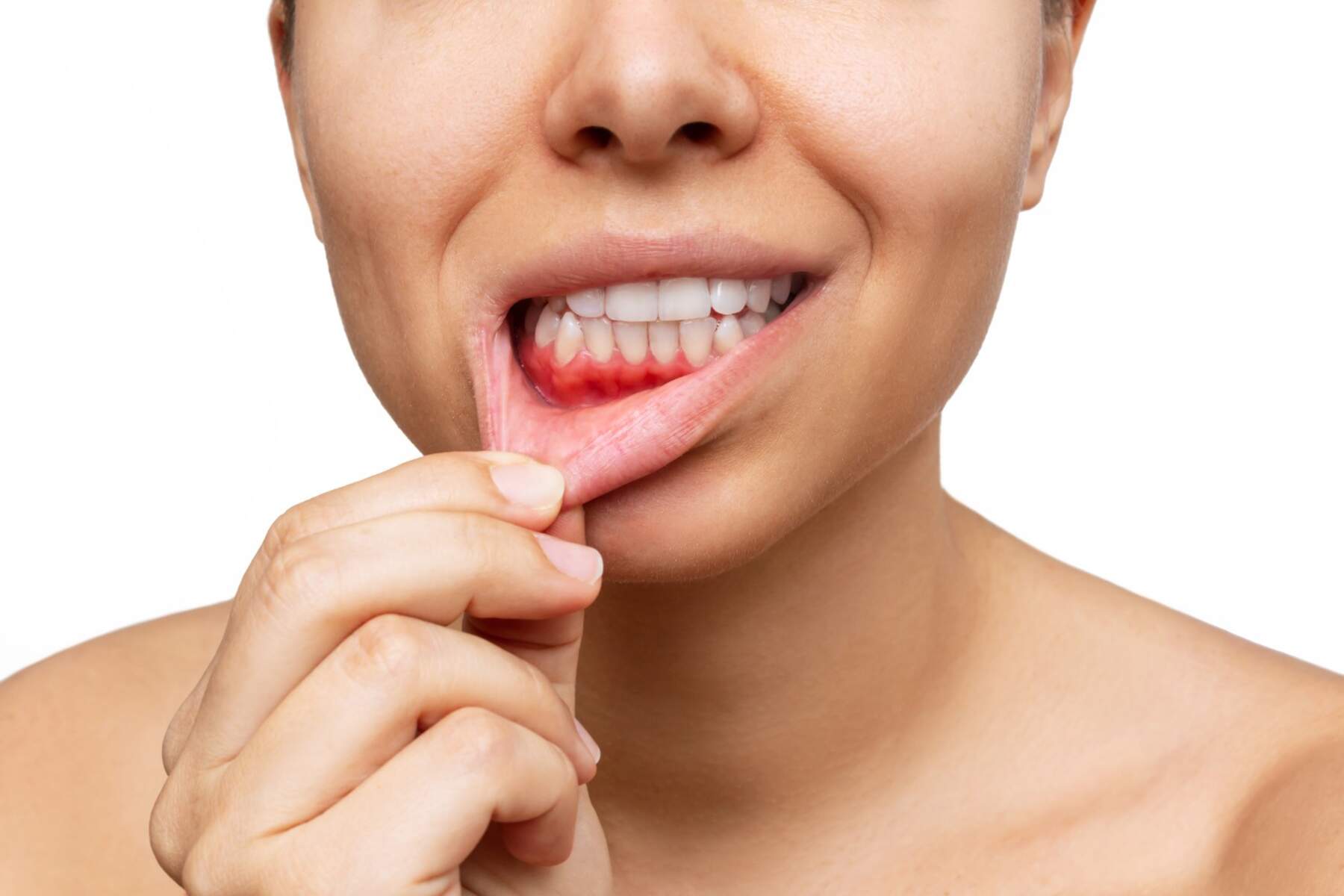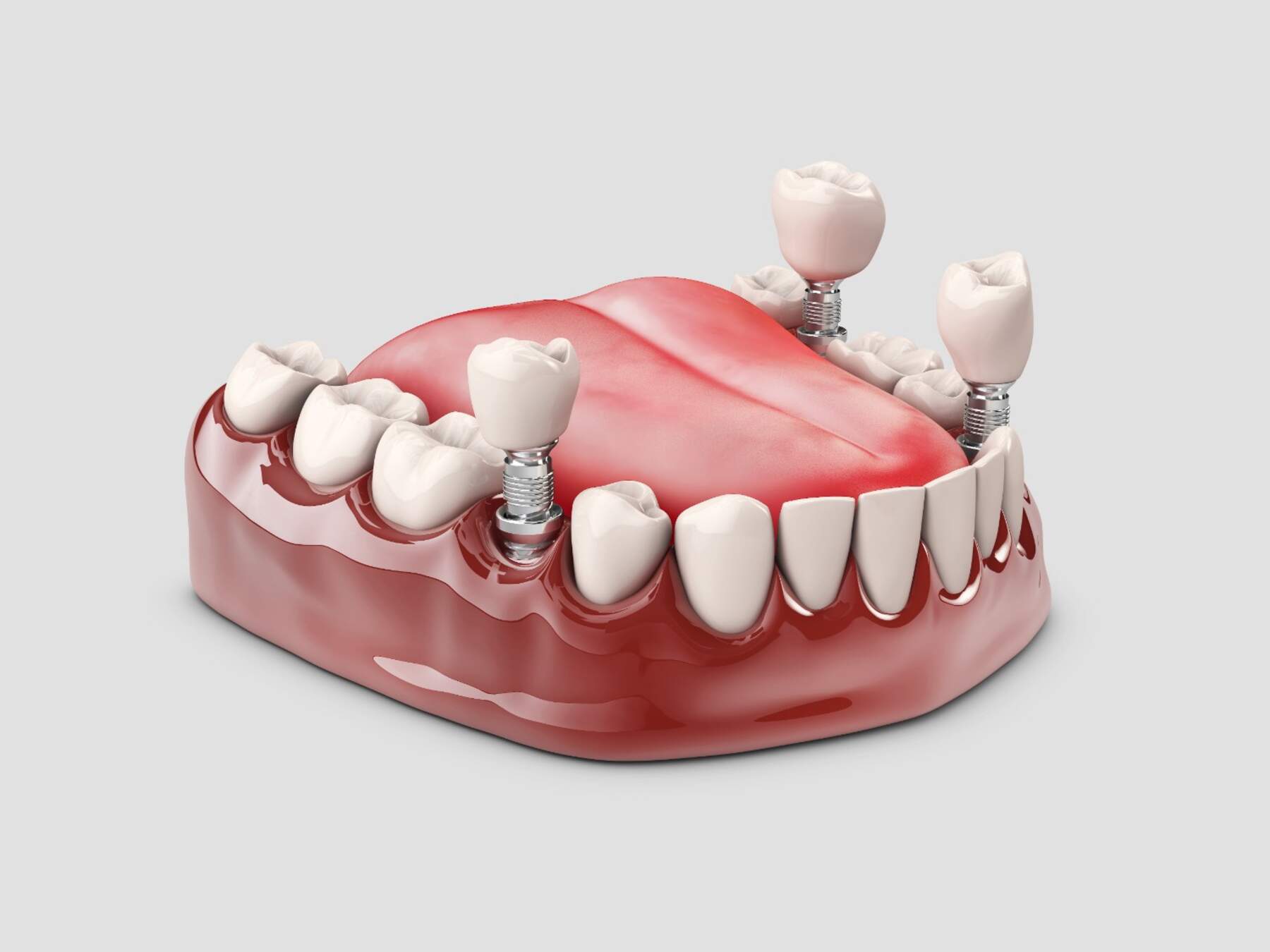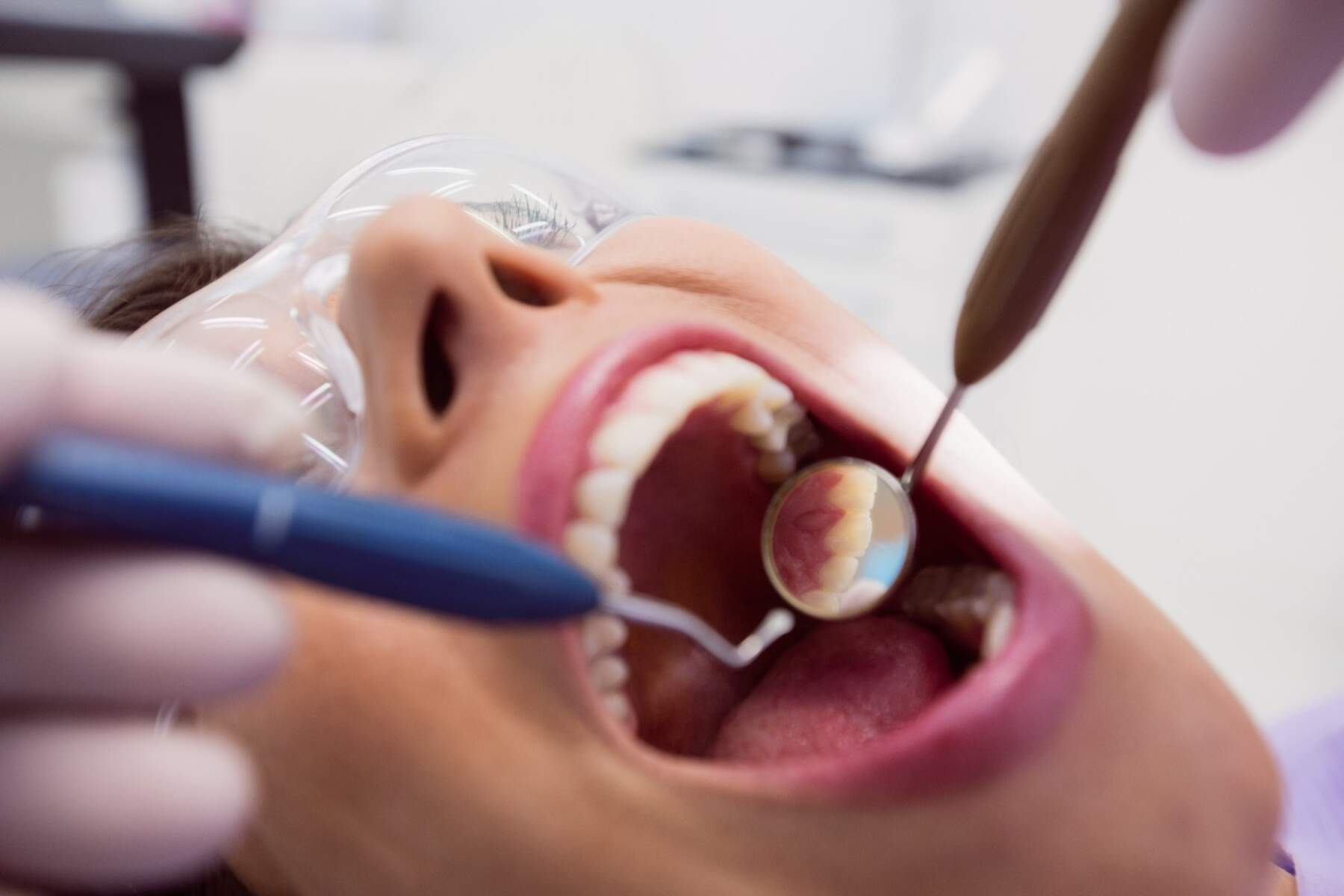Simple actions like brushing, drinking, and eating can cause pain and discomfort if you have sensitive teeth. Most of the time, sensitive teeth are caused by exposed roots or when the enamel of the tooth is damaged. Besides this, several other problems can cause pain and sensitivity for example; cavities, gum disease, worn filling, or a tooth that is cracked or chipped. If the pain persists and is becoming unbearable a visit to the dentist is a must. He will tell you what is causing this and recommend you a treatment.

What is teeth sensitivity?
When the underlayer of your teeth called the dentin is exposed your teeth start to be more sensitive. This can also happen when your gum tissue moves away from the teeth area, exposing your roots. The hundreds of small tubules in your tooth’s roots, which are not protected by hard enamel, lead to the pulp in the center of your tooth. The discomfort you experience is caused by stimuli like cold, hot, or sugary foods reaching the nerve in your tooth through these tooth canals Additionally, tooth decay, gum disease, or a fractured tooth can all be symptoms of various conditions, including tooth sensitivity.
What causes sudden tooth sensitivity?
Brushing too hard
By brushing your teeth very hard, or using a hard-bristled toothbrush you can cause your teeth enamel to wear down, expose the dentin, and recess the gums away from your teeth. The dentists recommend you use a soft-bristled toothbrush and brush in a soft round motion to avoid any damage to the tooth enamel.
Gum recession and disease
Some people are more prone to having thin gum tissue and others may develop it as a result of periodontal disease. In either case, this can cause teeth sensitivity if the roots of your teeth are exposed to external factors. Because of the loss of supporting ligaments, which exposes the root surface and leads directly to the nerve of the tooth Inflamed and sore gum tissue may also be the cause of tooth sensitivity.

Cracked teeth or plaque buildup
Bacteria that enter the broken areas of your chipped tooth enter the pulp and cause irritation to your gums and the presence of plaque on the surfaces can be the cause of tooth sensitivity.
Teeth grinding
If you have a habit of clenching and grinding your teeth during the day or night this will cause the enamel of your teeth to eventually expose. Also, teeth whitening procedures can be the cause of enamel explosion, which leads to sensitivity. If you are thinking of brightening your teeth and they are sensitive, talk with your dentist about what options might be right for you.
Age
Teeth sensitivity can happen at any age but the highest probability of it happening is between the age of 25-30.
Mouthwash use
Most mouthwashes contain acids which can worsen your case of tooth sensitivity if the middle layer of your tooth called the dentin is exposed. The acids will worsen your condition and that is why you should consult with your dentist for him to advise you on a mouthwash that contains fluoride solution that is right for you.

Acidic foods
Foods that contain acids like oranges, citrus lemons, pickles, or tea can cause enamel erosion worsening the case of teeth sensitivity.
Recent dental procedures
Procedures like teeth cleaning, fillings, dental restoration, and teeth whitening can lead to teeth sensitivity but it is usually a temporary condition and it will go away on its own. It usually lasts about four to five weeks.
Does a sensitive tooth mean infection?
Tooth sensitivity doesn’t indicate infection all of the time. Teeth sensitivity can be caused by tooth erosion or even gum recession. However, it might also indicate that your teeth might be damaged or infected. Pain from an infection can vary between slight and achy to severe and throbbing. If you experience significant tooth sensitivity that isn’t going away, contact your dentist immediately for further advice to treat your problem.
Can sensitive tooth pain go away?
As we said before it is possible for tooth pain caused by sensitivity to go away on its own without the use of any medication, especially after procedures like root canals, fillings, and teeth whitening. If you are experiencing persistent pain then you should consider contacting your dentist and he will find what is causing this and a proper treatment.

How are sensitive teeth diagnosed?
After you book a consultation with a dentist, he will do a thorough checkup to examine the overall health of your teeth. He will do a dental cleaning and a visual exam to try and look at problems like cavities, loose fillings, or any sign of gum recession which are the main cause of teeth sensitivity. This will be done during a usual routine cleaning. A dental X-ray can also be done and the dentist will tap the teeth with dental instruments to see where it is hurting.
Best treatments for sensitive teeth
Depending on the cause, the doctor will try to find the best treatment. During the check-up with the dentist, he will examine your teeth for any possible reason in order to rule out any serious condition and find the appropriate treatment for you. Some simple advice most dentists would recommend to you to reduce the risk of sensitive teeth are:
- Maintain proper oral hygiene: brush and floss your teeth regularly and make sure to remove any dirt from your teeth and mouth.
- Use desensitizing toothpaste and a soft-bristled toothbrush: There are several options of toothpaste your dentist will recommend to you if you are suffering from sensitive teeth. If you use it regularly you will gradually start to see improvement. Explore several options until you find what works best for you. Using a toothbrush with soft bristles will result in minimal abrasion and will not cause irritation to your gums. Using fluoride dental products will also help to decrease the sensitivity and there are several products you could use at home that your dentist will recommend.
- Teeth grinding: If you grind your teeth at night unconsciously your doctor will recommend you use a mouth guard to prevent this from happening. You will see a huge improvement in your overall delta heath.
- Maintain a healthy diet: Tooth enamel can be dissolved by acidic foods so you should be careful about excessive consumption of it as it can lead to dentin exposure.
- Regular visits to the dentist: If you are experiencing any problems it is important to talk to your dentist about it. The sooner the better he finds the cause of your issue as it will be easier to treat it, without getting worse.

How can I prevent sensitive teeth?
- The dentist will recommend you change the toothbrush every two months or as soon as it starts to become very worn, as it will not do its job properly.
- Use fluoride toothpaste. Brush and floss your teeth at least two times a day. The circular movement will help remove any dirt that is left and try to avoid side-to-side brushing.
- Try to avoid foods and beverages that contain sugar and acid as they will weaken your teeth.
- The doctor will provide you with a night guard to wear at night if you grind and clench your jaw at night.
- If you are thinking about whitening your teeth, discuss with your dentist what options are available for you without causing any harm.
- Regular visits are a must to prevent any damage.
What treatments can the dentist offer?
You will talk with your dentist about the symptoms that you are experiencing during the examination period. After this, they will try to find the root of your sensitivity in order to find the best treatment possible. To help ease the symptoms, the dental staff may use specific ‘desensitizing’ materials on the teeth that have been impacted. Sensitive teeth might benefit from fluoride gels, rinses, or varnishes. To build up some protection, they can be painted onto the teeth at frequent checkups one or two weeks apart.
Numerous sessions may be needed to settle the sensitivity of the tooth. If this does not help, your dentist may seal or fill the tooth’s neck, where the tooth and gum connect, to hide exposed dentine. In severe circumstances, the tooth may need to be root-filled but everything can be fixed so you don’t have to worry.
FAQ
When are teeth more likely to be sensitive?
Teeth are more likely to feel sensitivity when you drink or eat cold or very hot food and even when cold air catches your teeth. Acidic foods and sweets also trigger pain and discomfort. Sometimes the pain is persistent and sometimes it can come and go.
When should I see my dentist for teeth sensitivity?
If you have tried for a few weeks and have not had any improvement and the pain is becoming persistent you should schedule a visit with your dentist, to see what the best course of action is.
Is there anything I should avoid if I have sensitive teeth?
Avoiding foods like ice cream and other hot, cold, sweet, or acidic beverages may help you prevent developing sensitivity. Use warm water to clean your teeth if you experience sensitivity while using cold water from the faucet. Regular tooth brushing is crucial since failing to do so might make the issue worse.
Is there anything I can do to treat sensitive teeth at home?
There are several toothpaste products available that claim to reduce the discomfort of sensitive teeth. Use the fluoride toothpaste to clean your teeth twice daily. Rub it on the delicate parts as well. The time it takes for these toothpastes to start working might range from a few days to several weeks but eventually, it will get better.




